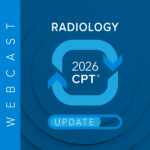CMS removed the admission order as a condition of payment effective Oct. 1, 2018.
The change in the 2019 Inpatient Prospective Payment System (IPPS) Final Rule concerning the inpatient admission order has created more controversy than I expected. When I read the proposed and final rules, wrote my RACmonitor articles (part one and part two), and presented my RACmonitor webinar, I expected hospitals to take this information and develop a reasonable plan to handle cases in which the admission order was defective or absent.
The Centers for Medicare & Medicaid Services (CMS) seemed to me to be telling hospitals that they understand that things can slip through the cracks, and they do not want to punish hospitals when that does happen. I never expected that anyone would read the same information and then take the stance that the need for a perfect order was mandatory, or would interpret my writings to mean that I thought that an admission order was no longer required.
As a basic review, when CMS established the two-midnight rule, it also added a condition of payment requiring an inpatient admission order (42 CFR 412.3-). The physician order must be present in the medical record and supported by the physician admission and progress notes in order for the hospital to be paid for hospital inpatient services under Medicare Part A. And in sub-regulatory guidance issued Jan. 30, 2014, CMS specified that the admission order must be authenticated prior to discharge for the admission to be billed to Part A. And as many of you probably experienced, if you had an admission audited, the first thing that was done was a review of the admission order and the authentication. If the order was not signed prior to discharge, the admission was immediately denied as a technical denial, with no opportunity for appeal and no review to determine if the admission otherwise was appropriate for Part A payment.
But as far back as 2011, CMS told us that in extremely rare circumstances in which the admission order was missing or defective, the admission could still be billed if the intent for inpatient admission was established. And even after the establishment of the admission order as a condition of payment, CMS reiterated that option in its 2014 guidance. CMS did not define “extremely rare,” but a 200-bed hospital can have over 15,000 inpatient admissions annually; that means if one defines extremely rare as 0.5 percent of admissions, that allows 75 instances of billing with an absent or defective admission order per year. The largest hospital in the country had over 70,000 inpatient admissions in 2016; if it billed 10 inpatient admissions with an absent or defective order a month, that would seem to be well within the “extremely rare” standard.
Yet it took CMS more than four years to realize that their contractors were denying admissions solely because the admission order was not authenticated prior to discharge. Once they realized what was happening, they proposed and then formally removed the admission order as a condition of payment, a change that became effective on Oct. 1, 2018. In the 2019 IPPS Proposed Rule, released in April, CMS stated, “it was not our intent when we finalized the admission order documentation requirements that they should by themselves lead to the denial of payment for otherwise medically reasonable and necessary inpatient stays.”
I would assume that all CMS contractors read the proposed rules, so once CMS said it was never their intent, every contractor should have stopped denying all admissions with a defective or absent admission order and instead look at each case to determine if Part A payment was appropriate, despite the defective order. They did not need to wait until the rule was finalized. Yet the denials persisted.
It should be remembered that the condition of payment that CMS established in 2013 was that an admission order must be present in the medical record, not that the order must be authenticated prior to discharge. An admission order written by a physician without admitting privileges or taken as a verbal order is still an order. And that order typically gets acted upon; the patient is formally admitted and given their Important Message advising them of their inpatient appeal rights. If a physician gives a verbal order for an antibiotic and that order is carried out, but then the physician does not authenticate that order, the antibiotic does not magically vanish from the patient’s body. The same applies to an admission order; if the patient is formally admitted, it is unclear to me how that patient could be “unadmitted” if the order is not signed. If the admission order was absent yet the patient was somehow formally admitted as an inpatient and received inpatient care, was that patient not an inpatient?
But even with the admission order listed as a condition of payment, CMS said that this was not absolute; if intent could be established, the admission could still be billed to Part A. In other words, the order was required, but that requirement was not absolute. So here is where it got controversial. In my RACmonitor articles and during my webinar, I thought I made it clear that I was not declaring that removal of the order as a condition of payment meant that getting an order was optional. (I will add that I did ask CMS if hospitals could stop getting any admission order and simply bill appropriately based on the care provided and the two-midnight rule in the comments to the 2019 Proposed Rule, but CMS quickly nixed the idea.)
I thought I made it clear that if you had a process in place to ensure that every inpatient had an inpatient admission order and that every admission order was signed prior to discharge, I advised to keep engaging in it. But if an admission did get through without an authenticated order (or any order at all) and if your process was to automatically self-deny, I suggested you should reconsider that. I felt, and continue to feel, that if the admission order is defective or absent but the admission would be otherwise be payable, a hospital can evaluate the case and potentially bill it for Part A payment.
It should be noted that I am stating that the hospital could potentially bill such a case. I am not making a blanket recommendation to bill to Part A every stay lacking an admission order. Each case must be reviewed on its merits, and the investigation and thought process should be documented. Each case should also be analyzed to see why such an omission happened and how such circumstances can be prevented in the future.
But still, things happen. The manufacturing of an automobile is the classic example of assembly-line production in which every step is carefully choreographed. In fact, Toyota is looked upon as the company that started the lean revolution, with many iterations to follow. Yet the occasional car still comes off the production line with a funny squeak or a problem with a light or a seat. When that does happen, the manufacturer does not throw away the whole car; they fix the defect, sell the car, and look to prevent further defects in future cars. Unsigned or absent admission orders are the same.
Imagine the post-operative cancer inpatient who is discharged on post-operative day four by their surgeon on morning rounds. The medication reconciliation is done, home care is ordered, the discharge paperwork is completed, and the family arrives to take the patient home. It is then discovered that the admission order was not authenticated. The surgeon is in the operating room, scrubbed into a complex four-hour colon resection. Should the surgeon be required to break scrub and find a computer to log in and sign the admission order? Or perhaps the surgeon should give his or her medical record password to the circulating nurse, who can use it to log in and sign the order for them? We could also simply tell the patient and family that they will need to wait another four hours to be discharged, keeping the bed occupied while patients needing the bed are cared for in the hallways of the emergency department, forced to use bedpans with absolutely no privacy. Or other post-operative patients could be forced to continue to wait in the recovery room on those hard beds with simply curtains dividing them from the patients who just had colonoscopies.
Or the patient could be allowed to go home, with the surgeon asked to authenticate the admission order once they have finished their surgery and can access a computer. The case manager could note in the record that the surgeon was in the OR and unable to authenticate the order, and that the patient-centered solution was to let the patient be discharged without the authentication. Although I don’t trust the Recovery Auditors (RACs) to accept such an explanation without specific instruction from CMS, the Beneficiary and Family Centered Care-Quality Improvement Organizations (BFCC-QIOs) and Medicare Administrative Contractors (MACs) should.
To go a step further, David Glaser, a renowned healthcare attorney and member of the RACmonitor editorial board, was interviewed by Nina Youngstrom for the Oct. 15, 2018 issue of the Report on Medicare Compliance newsletter. During the interview he stated that he thinks hospitals that have already had any denials due to lack of an authenticated admission order should immediately appeal them. I think his opinion can also be extrapolated to mean that if you self-denied any admissions for lack of an authenticated order, you should consider cancelling any claim you submitted and refiling for full Part A payment. Hoping I interpreted his recommendations properly, I think that when a lawyer with the reputation of David Glaser seems to agree with my stance on this issue, I have to think I am on the right track.
Once again, I think hospitals should read the rule itself, read my articles cited above, read David Glaser’s recommendation, talk to their own compliance teams and legal counsel, and decide what is right for themselves. If you choose to continue to self-deny all admissions with a defective or absent admission order, you will not be faulted. In fact, you may even be touted by those working hard to preserve the Medicare Trust Fund for providing excellent medical care at no cost to the Fund. But to quote CMS, I don’t think it is “the intent” of CMS that hospitals have to give away appropriate care because of the lack of a signature on the admission order – or absence of the word “admit.”
If you receive advice that billing an admission with a defective or absent order should happen “almost never,” I would ask for a definition of “almost never” and ask what circumstances warrant imposing their “almost never” exception. Perhaps their definition of “almost never” matches the CMS (non-existent) definition of “extremely rare.” Perhaps “almost never” is enough to fit the number of such admissions that slip through the cracks at your institution. But if their definition of “almost never” does not match your definition of “extremely rare,” I would stop, reread the rule, and decide which frequency you are willing to accept.
It is unclear if we will get more guidance from CMS or the contractors on this issue. When an admission with a defective or absent admission order is billed for Part A payment, there is no indication on the claim that the order is defective or absent. It will not be flagged for review or special handling. But if it is a short inpatient admission that is randomly pulled in the probe-and-educate audits, or the claim is audited as part of another review, such as a higher-weighted DRG or an outlier payment, you may be asked to justify your actions, so keep notes and have a process that you can describe. I think if all the other requirements for Part A payment are met, you will be able to keep your money. You provided care and you expended resources; you did your best to follow the rules. You earned that payment.
As long as you are not acting to purposely circumvent Medicare regulations, I think submitting a Part A claim is compliant.
Now it is up to you to decide what you want to do.
Program Note:
Register to listen to Dr. Ronald Hirsch every Monday on Monitor Mondays at 10-10:30 a.m. ET.













